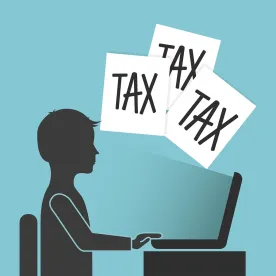The IRS has published Final Regulations finalizing its prior guidance that partners in a partnership must pay self-employment tax on their partnership income, even if they work for an entity owned entirely by the partnership and that is disregarded as an entity separate from the partnership for federal income tax purposes.
Background
The IRS’s long-held position is that a partner of a partnership may not be treated as an employee of the partnership for federal employment tax purposes. Instead, each partner is treated as self-employed and subject to self-employment taxes. Thus, compensation paid to a partner in a partnership for services performed for the partnership should not be reported by the partnership as wages on IRS Form W-2. Instead, all amounts paid to a partner in the capacity of a partner, whether compensation or otherwise, are reported on the partners’ Form 1065, Schedule K-1. If the payments are guaranteed compensation, they are reported as such on partners’ Form 1065, Schedule K-1, and the partners must pay self-employment taxes.
Under Treasury Regulations effective January 1, 2009 (the 2009 Regulations), a disregarded entity generally is treated as a corporation for employment tax purposes and therefore must obtain an employer identification number and withhold employment taxes from its employees. The 2009 Regulations, however, provide a limited exception to this rule when a disregarded entity is owned by a single individual who performs services for the disregarded entity. In that situation, the owner is subject to self-employment taxes and the disregarded entity has no withholding obligations.
The 2009 Regulations did not address disregarded entities owned by partnerships. Because of this absence of guidance, many partnerships took the position that a partnership could own a disregarded entity that employed partners in the partnership and could treat the partners as employees of the disregarded entity for employment tax purposes. Such partnerships (1) treated compensation the partners received from the disregarded entity as subject to federal employment tax withholding by the disregarded entity (instead of self-employment tax) and (2) treated such “employees” of the disregarded entities (i.e., the partners in the partnership that owns the disregarded entity) as employees who were eligible to participate in tax-favored employee benefit plans sponsored by the disregarded entity.
The Regulations
The Final Regulations adopt the approach taken by the IRS in Temporary Regulations published as part of a Notice of Proposed Rulemaking in May 2016. Consistent with the Temporary Regulations, the Final Regulations make clear that the IRS did not intend to carve out an exception for a partnership that owns a disregarded entity.
Under the Final Regulations, partners in a partnership that are employees of a disregarded entity owned by the partnership are subject to federal self-employment taxes; guaranteed amounts paid by the disregarded entity as compensation for services performed for the disregarded entity are treated as guaranteed payments to the partners by the partnership. Consequently, a disregarded entity that employs partners of a partnership that owns the disregarded entity should not withhold federal employment taxes and such partners are not employees for purposes of tax-favored employee benefit plans.
The Final Regulations became effective immediately and, consistent with the Temporary Regulations, apply to all payments made on or after August 1, 2016. However, in situations where employee benefit plans (i.e., any qualified plan, health plan, or cafeteria plan if the plan benefits participants whose employment status was affected by the Temporary Regulations) were affected, the Regulations apply as of the first day of the latest-starting plan year following May 4, 2016 (i.e., no later than May 4, 2017).
When the Temporary Regulations were published in May 2016, the IRS requested comments on the circumstances under which it may be appropriate to permit partners to also be employees of the partnership, and the impact on employee benefit plans and employment taxes if the IRS were to permit partners to also be employees in certain circumstances. Some commentators hoped this request was an indication the IRS was willing to reconsider its position that partners cannot be employees of a partnership in which they are partners. The Final Regulations, however, confirm that – at least for now – the IRS position remains unchanged.




 />i
/>i

